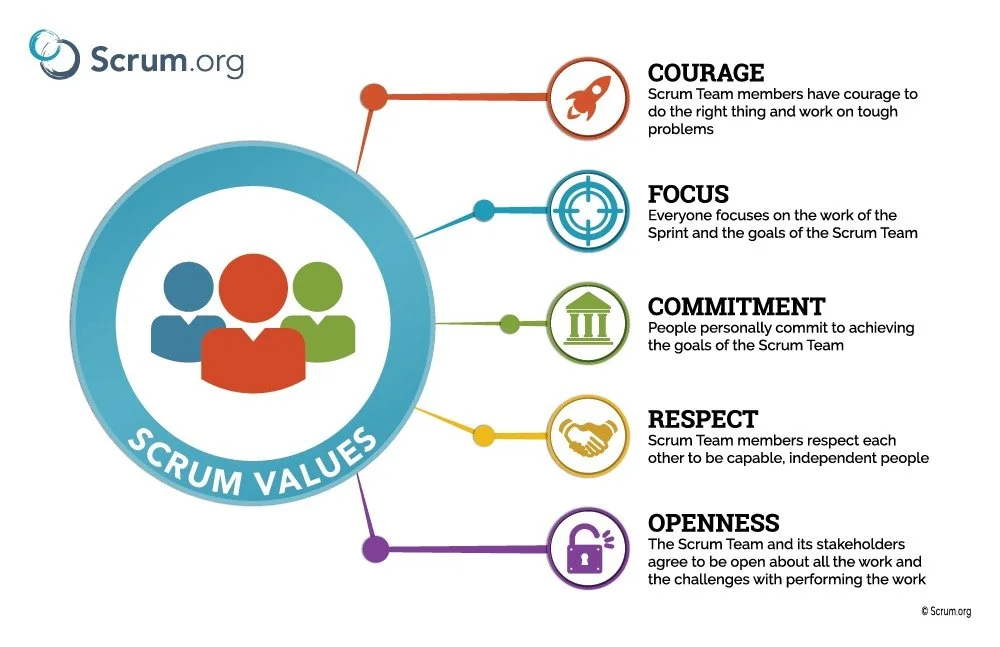A Stoic’s Guide to Retrospectives (perhaps)
/We all know that retrospectives and team reviews are meant to be a safe time and space set aside each cadence (1 week to 4 weeks) to review how things have gone from the team’s perspective. We know this should include time spent reflecting on what is working and improving and what is not. We know that following this retrospective view, we commit to change what isn't working and reinforce (or refine) what is working.
This is all great. However, I have taken part in, and facilitated, a broad range of reviews and sometimes feel that these sessions lack a certain something that helps really bring everything to life - something that encourages everyone in the room to contribute fully to our retrospection and commitments.
Recently, I happened to stumble upon something that, may not be THE answer, but certainly feels like a useful guide.
Enter the Stoics – a school of philosophy originating from ancient Greece and Rome who believe that fulfilment, personal growth and happiness can be found in ‘moral virtue’. Before you click off, Moral Virtue translates into current day speak as, ‘doing the right thing’. And surely, personal growth and fulfilment, based on doing the right thing, captures what we are trying to achieve from our reviews doesn’t it?
Stoics believe that we know when we are doing the right thing when we act with wisdom, justice, courage and moderation. These can be defined as:
Wisdom (good sense, good calculation, quick-wittedness, discretion and resourcefulness)
Justice (openness, honesty, equity, balance and fairness)
Courage (endurance, confidence, purpose, cheerfulness and rigour)
Moderation (appropriateness, discipline, modesty and self-control)
I believe these can provide the cornerstones for a Retrospective Charter which I think looks something like this:
Wisdom: We base our reviews on sound metrics and data that helps paint a picture of the world that has been over this cadence. We focus on the challenges that our in our control. We influence what is in our sphere of influence and we know when things are out of our control. We reflect on our purpose and remove obstacles that are blocking our path. We break down issues into individual challenges and rectify each one quickly and simply, mindful of not adding further complications and aligning our solutions to our overall purpose.
Justice: We ensure equal voice for team members and seek opinions and ideas equally from everyone involved. We look honestly at what has been, which means learning from the highs as well as the lows.
When focusing on the lows we identify perceived misalignments between expectations and performance. For example, if we deliver less than we committed to, we should be discussing why the gap occurred - were we over optimistic with our plans or did we underachieve? We can then look at what we can do to close the gap and what this teaches us about our expectation management, our capacity to deliver and our capability to deliver. Lastly, we need to make simple and easy-to-action changes which we believe match the needs of issue at hand.
As well as improving what is not working, we should also celebrate what is working and what is improving. We aim to learn equally from our successes and from our failures. We take action to repeat our successes and share our learning throughout the team.
Courage: We speak with open hearts and with compassion for ourselves and others. This means being open and honest with our mistakes and encouraging the same from others. We accept what has been and that our actions at the time were based on good intention based on what we knew at the time. And now we know more we can commit to changing things for the better. We celebrate this new knowledge, grateful for what it has taught us, so much so we treat it as a gift and look forward to using our newfound gifts in the next cadence and the next.
Moderation: We meet regularly and improve step by step, piece by piece. Our wish list of changes is congruent with the capacity and capability of the team. We take on neither too much or too little and our cycle of planning, doing and reviewing creates a rhythm that leads us forward with hope and renewed vigour. We understand that our primary focus is to deliver value to our customers. Sustaining and improving the way we deliver is always secondary to the achievement of delivery itself.
Come to think of it – don’t the 4 Stoic Values also support, and provide depth to, the 5 Scrum Values (described here by Scrum.org):
What do you think? Do the 4 Stoic virtues provide us with a useful Retrospective Charter - or am I one philosopher short of a full theory?!


